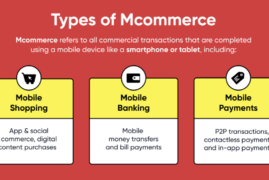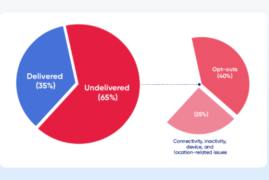Twitter, Spotify, and Square are just some of the most common names, but the list goes on and on. You’ve probably heard about how Java is secure, object-oriented, and scalable, but what does this all mean in practical terms? How can you use these features to build a great app? There is no need to worry in case you are not familiar with Java’s strengths. This post lists some of the advantages of using Java to build great web and mobile apps.
Java Virtual Machine
One of the main advantages of Java is without a doubt its virtual machine. A virtual machine emulates a given computer system, or in other words, it acts as a translator from Java to different operating systems. Thanks to this feature, Java is able to transform, through the use of a compiler, the source code into bytecode. This last is an instruction set that any computer can read. Using it helps eliminate barriers between different operating systems at the moment of running the code. As a result of this feature, Java is said to be a coding language with strong portability.
While many apps require the code to be specific for a given operating system, Java only needs to be written once. So instead of having to develop your code many times, a compiler makes sure it is translated into bytecode, which in turn is used so that any device, no matter its operating system, can read it. This makes it easier for developers to build an app across various platforms, saving a lot of time and resources throughout the process.
Java APIs
An API is one of the most important tools developers use to build any type of app. API stands for Application Processing Interface. Its function is to allow developers to access and use various libraries at the moment of writing the code. Libraries are essential to any developer because they contain subroutines, functions, and procedures that can be used without having to design them from scratch. Accessing these ample sets of libraries is one of the main advantages of building an app in Java.
Java APIs allow developers to use powerful code libraries depending on what they need to accomplish. Thanks to the diversity of existing Java APIs, it is possible to accelerate the development of an app no matter the goal. Some of the most common APIs used in web apps are the HTML, XML Parser API and the Web Frameworks API. Statistical APIs are also very important. Amongst them we find the Chart, Report, Graph API and the Math API. Other APIs specialize in language-specific functions, like the Natural Language Processing API.
Developers
Due to its features, Java is one of the most sought after and popular coding languages within the developer’s community. Although hiring a Java developer might be expensive, the reduced time of developing an app using Java can compensate for the extra costs. Additionally, the number of developers available in the market will not be a problem thanks to its attractiveness and competitiveness. If you are interested in hiring Java developers, the best way to go is to find a reliable partner that knows how to get the best out of Java and all its features. From a project management perspective, having an already set up team of experienced developers is more powerful than hiring individual ones.
Ease of use and appropriateness
Other important advantages of using Java are its language properties. Thanks to its easy to use syntax, developers can quickly build the app’s code in an orderly manner. This is important for startups, but also for more mature apps for whom scaling is an important issue.
Another significant advantage of Java is that it offers developers the possibility to execute commands by using simple rules. Additionally, it allows reusing code so that it does not have to be written again. In general, the language fits perfectly within agile working methodologies that help make efficient use of resources.
Java Message Service (JMS)
The last of Java’s advantages that we consider in this post is its message service. Thanks to its portability, Java can easily help a given app communicate with other apps. To do so, Java uses a unique message service that helps establish communication channels between different apps.
Most apps eventually face at some point the challenge of having to establish bridges between different apps, some of them in a different coding language. Solving this problem can be a time-consuming burden. Different providers exist that can do this task, but by using Java’s solution developers can play it safe, helping improve the performance, scalability, and reliability of an app without having to be gridlocked to third-party solution providers.
Java Message Service is particularly potent for building apps. By using it, any app can easily connect with other apps and devices. This can help improve the user experience of being connected to smart devices.

